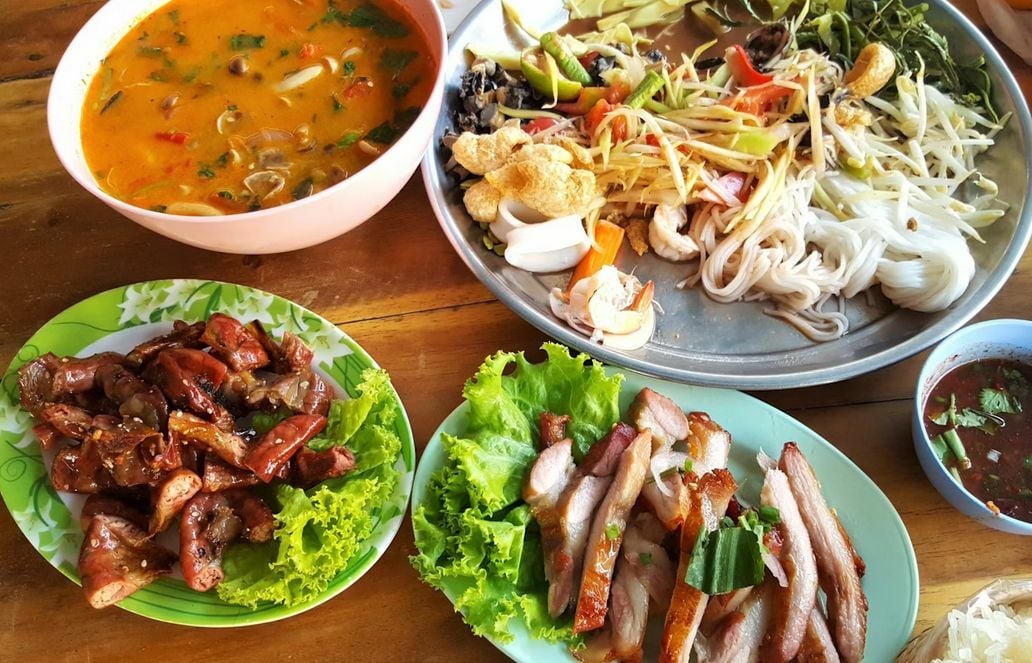Navigating the Thai workplace for expats

Understanding the Thai workplace is vital for expats aiming to thrive in Thailand. The environment balances traditional values and modern dynamics. Respect for hierarchy is essential, with seniority often influencing decision-making processes.
Expats should also familiarise themselves with Thai norms as a significant aspects include the traditional greeting known as the Wai, understanding that team spirit and harmony are highly valued, and learning how to avoid misunderstandings.
Navigating these elements will help expats integrate smoothly as balancing relationships and adherence to local practices can enhance their professional journey.
Thai workplace norms for foreigners

Confrontation at work
Thai culture values harmony. In the Thai workplace, employees tend to avoid direct confrontation. They prefer resolving conflicts through indirect methods, such as hinting at issues rather than confronting them head-on. This approach helps maintain relationships and prevent loss of face. It’s essential to understand this norm to navigate conflicts smoothly.
Work efficiency in Thailand
While Thai employees are dedicated, their work efficiency can vary. Due to cultural differences, Thai workplaces might prioritise thoroughness over speed. Tasks are often completed meticulously to avoid mistakes. This ensures high-quality outcomes but may sometimes lead to longer completion times. Understanding local business practices, including slower decision-making processes, is essential. Patience and flexibility go a long way towards achieving mutual goals.
Respect and misunderstandings
Thai workplaces are often hierarchical and respect for superiors is deeply ingrained. Decisions typically flow from the top down and questioning authority is rare. Acknowledging and respecting this structure fosters a positive work environment.
In Thailand, there’s often a fear of misunderstanding. Thai employees rarely question superiors to avoid appearing disrespectful. They might nod or indicate understanding even when unsure. Ensuring clear communication is crucial so if needed, repeating instructions and encouraging questions help bridge gaps.
Saving face is crucial in Thai culture. Avoid putting colleagues in situations where they might lose face. Public criticism or confrontations are frowned upon. Instead, provide feedback privately and constructively. This fosters a respectful and collaborative environment.
The Wai
The Wai is a traditional Thai greeting involving a slight bow with hands pressed together. It signifies respect and politeness. In professional settings, using the Wai appropriately shows cultural awareness and respect for colleagues. Learning some key phrases in Thai and doing this gesture displays respect and an eagerness to adapt to the culture in Thailand.
Competition in the workplace

The Thai workplace is competitive, especially for expats aiming to secure top positions. Employers often seek individuals who can enhance productivity while adapting to Thai norms. In Thailand, excelling in one’s role requires not just expertise but also cultural awareness and sensitivity.
Adaptive skills and flexibility hold significant weight. Expats often find that their ability to integrate with local practices such as maintaining respect for hierarchy and engaging in team-based projects is crucial for career progression. This cultural alignment can make a considerable difference in standing out among peers.
Employers in Thailand value continuous learning. Upskilling and reskilling initiatives are commonly promoted, ensuring that the workforce remains in sync with emerging trends and technologies. Expats who invest in their development through such programmes often have a competitive edge.
Networking is another critical aspect. Building relationships with local colleagues not only enhances workplace harmony but also opens doors to new opportunities. In a Thai workplace, much like other Asian cultures, networking often influences career trajectories.
Workspace culture and activities

The concept of ‘Sanuk’ (fun) and work-life balance in the Thai workplace
In the Thai workplace, blending fun, or ‘Sanuk’, with professional duties is standard practice. Work isn’t just about productivity but also about creating an enjoyable atmosphere. Employers encourage a balance between work and relaxation. This enhances employee morale and cohesion. Activities like team-building exercises are common as they foster camaraderie and reduce stress.
Maintaining work-life balance is vital. Many companies offer flexible hours and telecommuting options. Employees often take short breaks to recharge and it’s acceptable to engage in social conversations during work hours as this promotes a positive and collaborative environment.
Eating habits and group outings
Eating together forms a significant part of Thai workplace culture and shared meals strengthen relationships. It’s customary to enjoy lunch as a group. Employees often visit local food stalls or bring homemade dishes to share. Participating in these gatherings is crucial for social integration.
Group outings are another staple. They range from casual dinners to weekend retreats. These outings serve to build stronger interpersonal ties. Employers and colleagues get to know each other better outside the office so such activities improve teamwork and job satisfaction.
Including ‘Sanuk’ in daily routines and partaking in communal meals and outings reveals the social nature of the Thai workplace. Understanding and embracing these practices leads to smoother cultural integration for expats. Don’t be shy and join in on the fun!
It can be seen that understanding the Thai workplace is crucial for expats. Teamwork and social interactions, key elements of Thai work culture, foster a harmonious and productive environment. Expats who adapt and demonstrate politeness and respect for hierarchy find it easier to integrate. If you are looking to learn more about work culture in Thailand, we recommend you to visit our article on ‘Generation gaps in the workplace.’
Latest Thailand News
Follow The Thaiger on Google News:

























